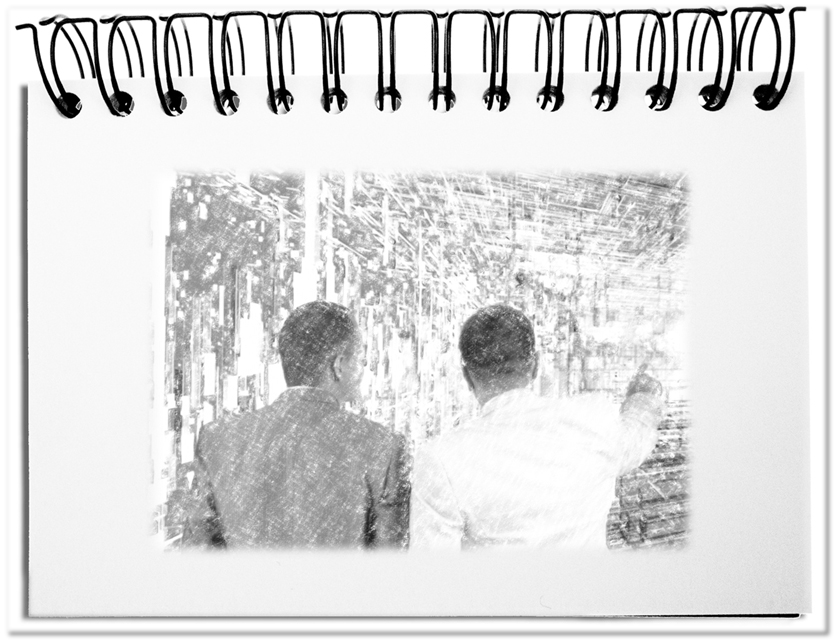As long as one is mentally stuck in the previous millennium, one tries to ensure an outdated claim to leadership, although we have completely different framework conditions nowadays. More than 7.7 billion people, and over half of them are surfing the Internet. This means that we are only one click away from each other. In the interest of reducing the complexity, the resulting oppressive transparency leads to the formation of information bubbles. This strong networking is not only impacting everyday global life, but also the work within the boundaries of the company. The old head start of knowledge is power is slipping away from managers due to the fact that the sources are available to everyone. When in doubt, employees are better informed than their superiors. The claim to leadership is additionally challenged by new, self-determined approaches of cooperation: agile organization, holacracy, sociocracy, liberated companies. It makes sense that, in this situation, managers are looking for ways to act as if they still pulled all the strings.
If you carefully observe your own environment, you will find everywhere examples of leaders, who no longer know, what their raison d’être is. You can recognize them by the following examples.
- Simulating decisiveness through goals
An important function is to decisively set goals and stand up for them. This begins with verbal commitments to a goal: “I am firmly committed to ensuring that we think about how we should get involved in this matter in a foreseeable future.” And extends to targets that are so far in the future that decision-makers will neither take responsibility for the results nor will they even be available – “CO2 neutrality by 2050! “
This is done in both cases as if something has been decided. In fact, the possible effects of such a decision are uncertain or in the far future, so that the decision-makers cannot be held responsible for the failure. - Lengthy alignments
As the target groups observe every step of the decision makers, it is key to give the impression that one is actively working on a solution. Therefore, the influencing groups should be involved, and work on a consensus in joint discussion sessions. For this purpose, meetings are made on various topics, which should generate written agreements within a week.
More and more often there is just enough time for a minimal consensus, which, however, requires all participants that they concede certain points. To do this, you have to overrun the timeframe, work in night shifts and then show the result after the deadline has run out. The appearance of effort is thus preserved, and the modest compromise is revaluated. - Distraction through finger pointing
To counter any criticism from the outset, one simply accuses others of providing false information, abusing their power and manipulating the public. That way, the accusations of the opponents are preempted, and puts the ball for the time being in the opponent’s field. If the opponents then justify themselves, the criticism is distracted, and one is seen as a good negotiator.
Fatally, the reference to smoke suggests the public to believe that there is a fire. Whether invented or true cannot be immediately comprehended. Later rectifications are not able to let vanish the invented facts. It is sufficient to be the first to see smoke. - Proclaiming sovereignty
Professional demagogues eventually use the return to self-esteem. The own opinion is underlined and placed before all other points of view. With America first, this can be implemented, because the message is understandable and desired by the target audience – because they have no idea what it means to them. And since this approach works so well in the USA, others are now starting to catch up. And the people who follow this path celebrate themselves as saviors and strong leaders.
Sovereignty and exclusion create a sense of “we” in one’s own group that exploits the “We are good – the others bad”. In order to set an effective starting point, one terminates existing contracts and expects at the same time the previous rights – without the corresponding obligations. Your own group pays the bill, as the misappropriated disadvantages only become visible afterwards.
Bottom line: Here, leadership is less an action than a semblance that sets the target groups in motion. After decisions have been made, changes should occur. However, changes are not foreseeable if they are in the far future, if lengthy alignments create an ineffective consensus, if blaming people for the own weaknesses distract and if propaganda fogs the audience. Fatally, those affected do not notice that decisions are being avoided – if you don’t decide anything, you don’t do anything wrong. Hopefully the target groups will wake up from the sleep of the innocent and remember that they are demanding decisions for their own benefit. Pretending to lead is no longer enough.

